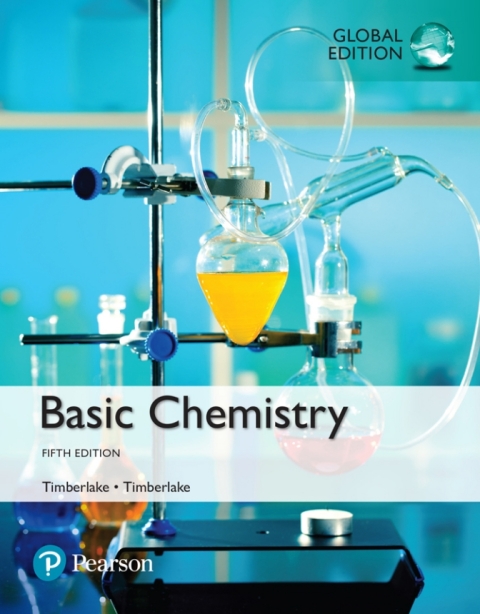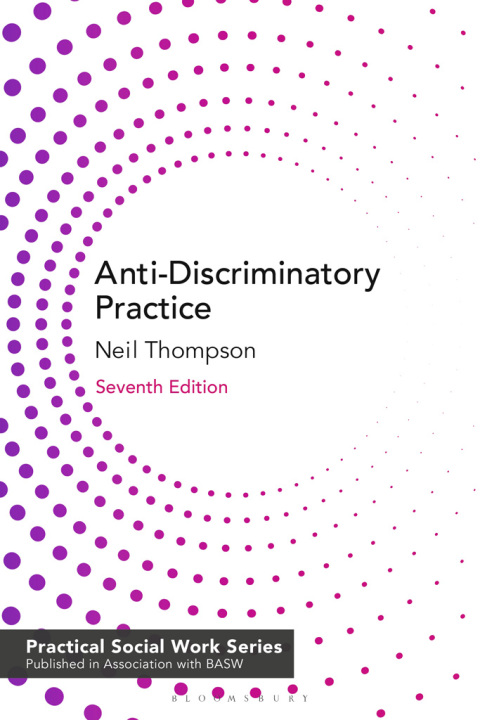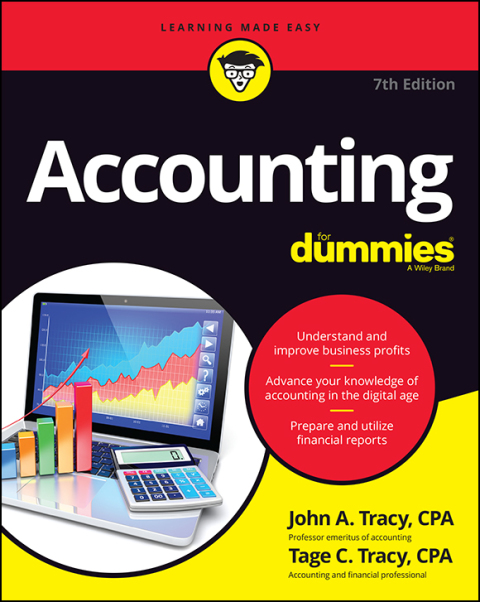Description
Efnisyfirlit
- Title Page
- Copyright Page
- Brief Contents
- Table of Contents
- Applications and Activities
- About the Authors
- Preface
- Reviewers
- 1 Chemistry in Our Lives
- Career: Forensic Scientist
- 1.1 Chemistry and Chemicals
- 1.2 Scientific Method: Thinking Like a Scientist
- Chemistry Link to Health Early Chemist: Paracelsus
- 1.3 Learning Chemistry: A Study Plan
- 1.4 Key Math Skills for Chemistry
- 1.5 Writing Numbers in Scientific Notation
- Concept Map
- Chapter Review
- Key Terms
- Key Math Skills
- Understanding the Concepts
- Additional Questions and Problems
- Challenge Questions
- Answers
- 2 Chemistry and Measurements
- Career: Registered Nurse
- 2.1 Units of Measurement
- 2.2 Measured Numbers and Significant Figures
- 2.3 Significant Figures in Calculations
- 2.4 Prefixes and Equalities
- 2.5 Writing Conversion Factors
- 2.6 Problem Solving Using Unit Conversion
- Chemistry Link to Health Toxicology and Risk–Benefit Assessment
- 2.7 Density
- Chemistry Link to Health Bone Density
- Concept Map
- Chapter Review
- Key Terms
- Key Math Skill
- Core Chemistry Skills
- Understanding the Concepts
- Additional Questions and Problems
- Challenge Questions
- Answers
- 3 Matter and Energy
- Career: Dietitian
- 3.1 Classification of Matter
- Chemistry Link to Health Breathing Mixtures
- 3.2 States and Properties of Matter
- 3.3 Temperature
- Chemistry Link to Health Variation in Body Temperature
- 3.4 Energy
- Chemistry Link to the Environment Carbon Dioxide and Climate Change
- 3.5 Specific Heat
- 3.6 Energy and Nutrition
- Chemistry Link to Health Losing and Gaining Weight
- Concept Map
- Chapter Review
- Key Terms
- Core Chemistry Skills
- Understanding the Concepts
- Additional Questions and Problems
- Challenge Questions
- Answers
- Combining Ideas from Chapters 1 to 3
- 4 Atoms and Elements
- Career: Farmer
- 4.1 Elements and Symbols
- Chemistry Link to the Environment Many Forms of Carbon
- Chemistry Link to Health Toxicity of Mercury
- 4.2 The Periodic Table
- Chemistry Link to Health Elements Essential to Health
- 4.3 The Atom
- 4.4 Atomic Number and Mass Number
- 4.5 Isotopes and Atomic Mass
- Concept Map
- Chapter Review
- Key Terms
- Core Chemistry Skills
- Understanding the Concepts
- Additional Questions and Problems
- Challenge Questions
- Answers
- 5 Electronic Structure of Atoms and Periodic Trends
- Career: Materials Engineer
- 5.1 Electromagnetic Radiation
- Chemistry Link to Health Biological Reactions to UV Light
- 5.2 Atomic Spectra and Energy Levels
- Chemistry Link to the Environment Energy-Saving Fluorescent Bulbs
- 5.3 Sublevels and Orbitals
- 5.4 Orbital Diagrams and Electron Configurations
- 5.5 Electron Configurations and the Periodic Table
- 5.6 Trends in Periodic Properties
- Concept Map
- Chapter Review
- Key Terms
- Core Chemistry Skills
- Understanding the Concepts
- Additional Questions and Problems
- Challenge Questions
- Answers
- 6 Ionic and Molecular Compounds
- Career: Pharmacist
- 6.1 Ions: Transfer of Electrons
- Chemistry Link to Health Some Important Ions in the Body
- 6.2 Ionic Compounds
- 6.3 Naming and Writing Ionic Formulas
- 6.4 Polyatomic Ions
- 6.5 Molecular Compounds: Sharing Electrons
- Concept Map
- Chapter Review
- Key Terms
- Core Chemistry Skills
- Understanding the Concepts
- Additional Questions and Problems
- Challenge Questions
- Answers
- 7 Chemical Quantities
- Career: Veterinarian
- 7.1 The Mole
- 7.2 Molar Mass
- 7.3 Calculations Using Molar Mass
- 7.4 Mass Percent Composition
- Chemistry Link to the Environment Fertilizers
- 7.5 Empirical Formulas
- 7.6 Molecular Formulas
- Concept Map
- Chapter Review
- Key Terms
- Core Chemistry Skills
- Understanding the Concepts
- Additional Questions and Problems
- Challenge Questions
- Answers
- Combining Ideas from Chapters 4 to 7
- 8 Chemical Reactions
- Career: Exercise Physiologist
- 8.1 Equations for Chemical Reactions
- 8.2 Balancing a Chemical Equation
- 8.3 Types of Chemical Reactions
- Chemistry Link to Health Incomplete Combustion: Toxicity of Carbon Monoxide
- 8.4 Oxidation–Reduction Reactions
- Concept Map
- Chapter Review
- Key Terms
- Core Chemistry Skills
- Understanding the Concepts
- Additional Questions and Problems
- Challenge Questions
- Answers
- 9 Chemical Quantities in Reactions
- Career: Environmental Scientist
- 9.1 Conservation of Mass
- 9.2 Calculating Moles Using Mole–Mole Factors
- 9.3 Mass Calculations for Reactions
- 9.4 Limiting Reactants
- 9.5 Percent Yield
- 9.6 Energy in Chemical Reactions
- Chemistry Link to Health Cold Packs and Hot Packs
- Concept Map
- Chapter Review
- Key Terms
- Core Chemistry Skills
- Understanding the Concepts
- Additional Questions and Problems
- Challenge Questions
- Answers
- 10 Bonding and Properties of Solids and Liquids
- Career: Histologist
- 10.1 Lewis Structures for Molecules and Polyatomic Ions
- 10.2 Resonance Structures
- 10.3 Shapes of Molecules and Polyatomic Ions (VSEPR Theory)
- 10.4 Electronegativity and Bond Polarity
- 10.5 Polarity of Molecules
- 10.6 Intermolecular Forces between Atoms or Molecules
- 10.7 Changes of State
- Chemistry Link to Health Steam Burns
- Concept Map
- Chapter Review
- Key Terms
- Core Chemistry Skills
- Understanding the Concepts
- Additional Questions and Problems
- Challenge Questions
- Answers
- Combining Ideas from Chapters 8 to 10
- 11 Gases
- Career: Respiratory Therapist
- 11.1 Properties of Gases
- Chemistry Link to Health Measuring Blood Pressure
- 11.2 Pressure and Volume (Boyle’s Law)
- Chemistry Link to Health Pressure–Volume Relationship in Breathing
- 11.3 Temperature and Volume (Charles’s Law)
- 11.4 Temperature and Pressure (Gay-Lussac’s Law)
- 11.5 The Combined Gas Law
- 11.6 Volume and Moles (Avogadro’s Law)
- 11.7 The Ideal Gas Law
- 11.8 Gas Laws and Chemical Reactions
- 11.9 Partial Pressures (Dalton’s Law)
- Chemistry Link to Health Hyperbaric Chambers
- Concept Map
- Chapter Review
- Key Terms
- Core Chemistry Skills
- Understanding the Concepts
- Additional Questions and Problems
- Challenge Questions
- Answers
- 12 Solutions
- Career: Dialysis Nurse
- 12.1 Solutions
- Chemistry Link to Health Water in the Body
- 12.2 Electrolytes and Nonelectrolytes
- Chemistry Link to Health Electrolytes in Body Fluids
- 12.3 Solubility
- Chemistry Link to Health Gout and Kidney Stones: A Problem of Saturation in Body Fluids
- 12.4 Solution Concentrations
- 12.5 Dilution of Solutions
- 12.6 Chemical Reactions in Solution
- 12.7 Molality and Freezing Point Lowering/Boiling Point Elevation
- 12.8 Properties of Solutions: Osmosis
- Chemistry Link to Health Dialysis by the Kidneys and the Artificial Kidney
- Concept Map
- Chapter Review
- Key Terms
- Core Chemistry Skills
- Understanding the Concepts
- Additional Questions and Problems
- Challenge Questions
- Answers
- 13 Reaction Rates and Chemical Equilibrium
- Career: Chemical Oceanographer
- 13.1Rates of Reactions
- Chemistry Link to the Environment Catalytic Converters
- 13.2 Chemical Equilibrium
- 13.3 Equilibrium Constants
- 13.4 Using Equilibrium Constants
- 13.5 Changing Equilibrium Conditions: Le Châtelier’s Principle
- Chemistry Link to Health Oxygen–Hemoglobin Equilibrium and Hypoxia
- Chemistry Link to Health Homeostasis: Regulation of Body Temperature
- 13.6 Equilibrium in Saturated Solutions
- Concept Map
- Chapter Review
- Key Terms
- Core Chemistry Skills
- Understanding the Concepts
- Additional Questions and Problems
- Challenge Questions
- Answers
- 14 Acids and Bases
- Career: Clinical Laboratory Technician
- 14.1 Acids and Bases
- 14.2 Brønsted–Lowry Acids and Bases
- 14.3 Strengths of Acids and Bases
- 14.4 Dissociation Constants for Acids and Bases
- 14.5 Dissociation of Water
- 14.6 The pH Scale
- Chemistry Link to Health Stomach Acid, HCl
- 14.7 Reactions of Acids and Bases
- Chemistry Link to Health Antacids
- 14.8 Acid–Base Titration
- 14.9 Buffers
- Chemistry Link to Health Buffers in the Blood Plasma
- Concept Map
- Chapter Review
- Key Terms
- Key Math Skills
- Core Chemistry Skills
- Understanding the Concepts
- Additional Questions and Problems
- Challenge Questions
- Answers
- Combining Ideas from Chapters 11 to 14
- 15 Oxidation and Reduction
- Career: Dentist
- 15.1 Oxidation and Reduction
- 15.2 Balancing Oxidation–Reduction Equations Using Half-Reactions
- 15.3 Electrical Energy from Oxidation–Reduction Reactions
- Chemistry Link to the Environment Corrosion: Oxidation of Metals
- Chemistry Link to the Environment Fuel Cells: Clean Energy for the Future
- 15.4 Oxidation–Reduction Reactions That Require Electrical Energy
- Concept Map
- Chapter Review
- Key Terms
- Core Chemistry Skills
- Understanding the Concepts
- Additional Questions and Problems
- Challenge Questions
- Answers
- 16 Nuclear Chemistry
- Career: Radiologist
- 16.1 Natural Radioactivity
- 16.2 Nuclear Reactions
- Chemistry Link to Health Radon in Our Homes
- 16.3 Radiation Measurement
- Chemistry Link to Health Radiation and Food
- 16.4 Half-Life of a Radioisotope
- Chemistry Link to the Environment Dating Ancient Objects
- 16.5 Medical Applications Using Radioactivity
- Chemistry Link to Health Brachytherapy
- 16.6 Nuclear Fission and Fusion
- Chemistry Link to the Environment Nuclear Power Plants
- Concept Map
- Chapter Review
- Key Terms
- Core Chemistry Skills
- Understanding the Concepts
- Additional Questions and Problems
- Challenge Questions
- Answers
- Combining Ideas from Chapters 15 and 16
- 17 Organic Chemistry
- Career: Firefighter/Emergency Medical Technician
- 17.1 Alkanes
- 17.2 Alkenes, Alkynes, and Polymers
- Chemistry Link to Health Hydrogenation of Unsaturated Fats
- 17.3 Aromatic Compounds
- Chemistry Link to the Environment Some Common Aromatic Compounds
- 17.4 Alcohols and Ethers
- Chemistry Link to Health Some Important Alcohols, Phenols, and Ethers
- 17.5 Aldehydes and Ketones
- Chemistry Link to the Environment Vanilla
- 17.6 Carboxylic Acids and Esters
- Chemistry Link to Health Carboxylic Acids in Metabolism
- 17.7 Amines and Amides
- Chemistry Link to the Environment Alkaloids: Amines in Plants
- Concept Map
- Chapter Review
- Summary of Naming
- Summary of Reactions
- Key Terms
- Core Chemistry Skills
- Understanding the Concepts
- Additional Questions and Problems
- Challenge Questions
- Answers
- 18 Biochemistry
- Career: Clinical Lipid Specialist
- 18.1 Carbohydrates
- Chemistry Link to Health Hyperglycemia and Hypoglycemia
- 18.2 Disaccharides and Polysaccharides
- Chemistry Link to Health How Sweet is My Sweetener?
- 18.3 Lipids
- Chemistry Link to Health Trans Fatty Acids and Hydrogenation
- 18.4 Amino Acids and Proteins
- Chemistry Link to Health Essential Amino Acids
- 18.5 Protein Structure
- 18.6 Proteins as Enzymes
- 18.7 Nucleic Acids
- 18.8 Protein Synthesis
- Concept Map
- Chapter Review
- Key Terms
- Core Chemistry Skills
- Understanding the Concepts
- Additional Questions and Problems
- Challenge Questions
- Answers
- Combining Ideas from Chapters 17 and 18
- Credits
- Glossary/Index
- A
- B
- C
- D
- E
- F
- G
- H
- I
- J
- K
- L
- M
- N
- O
- P
- Q
- R
- S
- T
- U
- V
- W
- X
- Y
- Z






Reviews
There are no reviews yet.